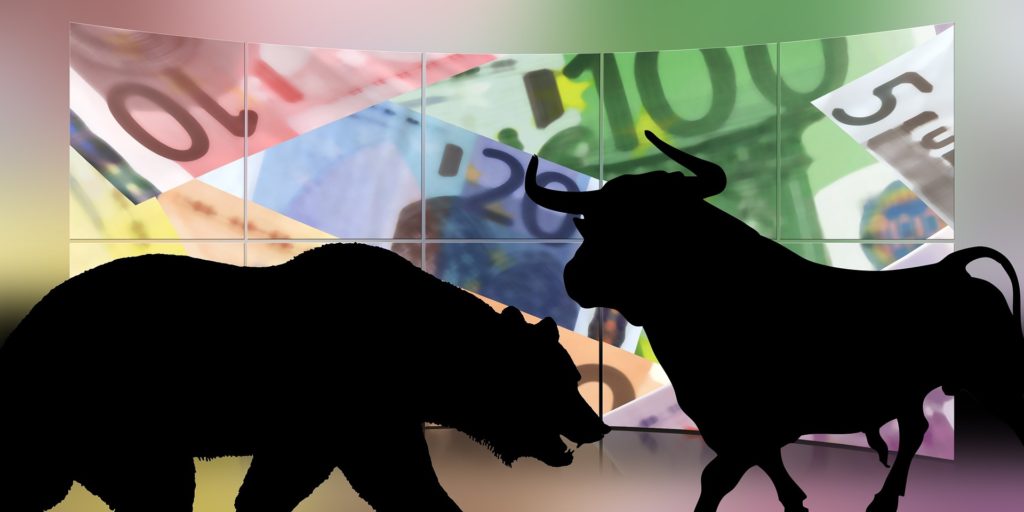Recession vs. Rally: Why the Stock Market Is Booming While the Economy Tanks

Nishanth S Coontoor
According to Yahoo! Finance reporting, The National Bureau of Economic Research says the US economy is officially in a recession. It reports that the NBER did not have to wait for two consecutive negative GDP growth to make this call. Let’s recap to how we got here.
In the first week of March, as the cases of the coronavirus surged in the country, the USA followed the steps taken around the world and went into lockdown mode. Businesses such as retail, restaurants, gyms shut down. Airline travel dropped. Panic buying toilet paper and sanitizer was at its peak. A lot of us started working from home convinced this is the new normal, possibly for the rest of the year. Commuting to the local grocery store was frowned upon. Waze, the GPS app on my phone, always volunteered to point it out even if I did not ask.
Sitting at home, I remember talking to a friend who works in the semi-conductor industry. He was telling me the impact the virus has had to their facilities in China. We would talk at length on what it meant to other supply chains also dependent on China. What we really wanted to understand was what it meant to his job and mine.
Around this time, the stock market circuit breakers went off multiple times as the sell off intensified. Each day was a roller coaster ride with volatility. Good news like that on Gilead Sciences and their vaccine drug trial led to gains and any bad news, the stock market would panic and drop. “Don’t open your 401K account,” was a wise advice given that stuck in my mind.
Since then, we have seen the US employment rate spike. Over the last two months, the unemployment claims data released weekly on Thursdays are over 36 million.
Phew! So, finally, when someone says the US economy is in a recession, you may shrug and instead ask ‘What else?’
Or not.
Today, the S&P 500 has erased all the loses and is in the green. Its up 43%. While this may seem to be an unexpected twist, a lot of optimism comes from the fact that the Federal Reserve’s money printer went off and stimulated the economy with 3 Trillion Dollars. This, along with their assurance that they would do whatever it takes, gave investors the courage and optimism to continue to invest in the stock market.
Today I also realized that the S&P 500 being up 43% does not mean the economy is necessarily up right now. (Many expect a gradual recovery as businesses open). The S&P 500 is the top 500 companies weighted by their company value. So, large companies like Facebook, Amazon, Apple, Netflix, Google and Microsoft have a significant impact on the index. Irrespective of the fact that many of the remaining companies in this index are still down, they have little impact because the tech sector led by the FAANGM stocks have outperformed.
This explanation makes a little sense now when I see the news that S&P 500 is back to pre-covid levels.
There are still aspects that confuse the logical me, to be honest.
Coronavirus cases in some states like Florida that have reopened continue to climb. As other states like Nevada, with the resorts and casinos re-open, won’t they have the same risk?
Passengers are resuming snapping those seatbelts and flying, and this has caused Boeing and other airline stocks to pop. But, not having a middle seat passenger won’t prevent a spread. Did Boeing resolve the safety issues it was working on?
As investors return to the market, the Oracle of Omaha’s recent sell off his airline stocks makes me wonder what his thought process was that others are missing out on. Why has he been so quiet?
I know several who lost jobs, called American express to get assistance to pay debts, took a pay cut or are working reduced hours.
Amidst all this, the last thing you’d expect is a stock market rally.
Is it a bubble?
Will the stock market crash?
Is the risk ‘factored’ in?
These questions may not worry a long term investor. From my readings, the right index fund may distribute the risk across multiple companies. Plus, dollar-cost averaging over the long term may help with volatility.
On a Reddit forum, a Redditor claimed something more drastic like maybe aliens visiting us may force a correction. But then, as someone else on Reddit immediately responded, we would probably find a way to sell Apple iPhones back to them and see an all time high. Again.
.
.
.
.
Image by Gerd Altmann from Pixabay
Legal Disclosure:
I am not a financial advisor. The information contained in this blog/website is for information and entertainment purposes only. It is not professional financial advice. Before investing, please consult a licensed professional. I will not be liable for any losses you may incur for investing and trading in the stock market.